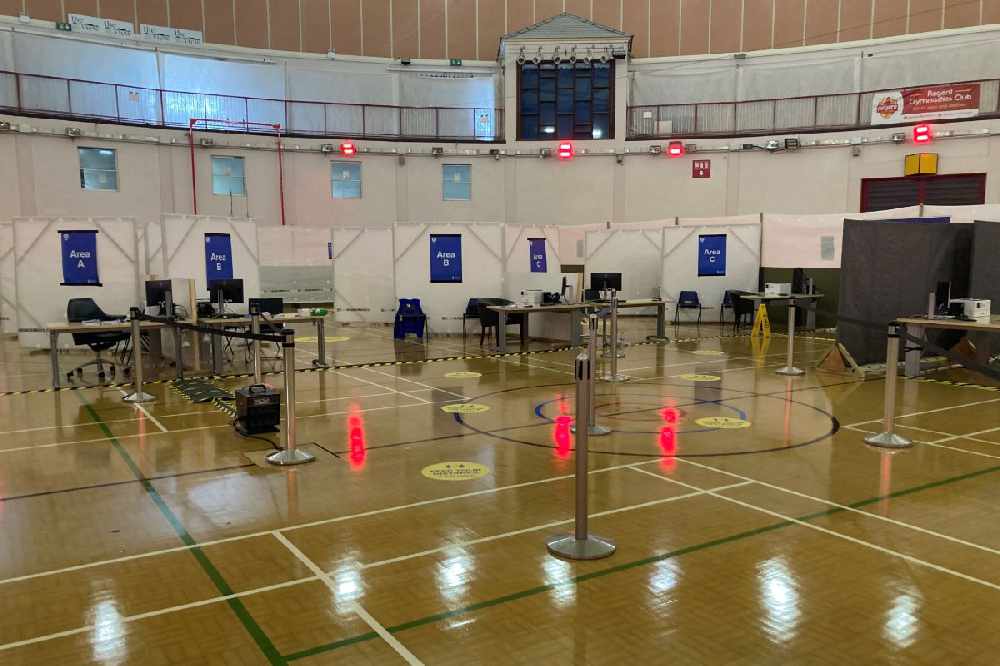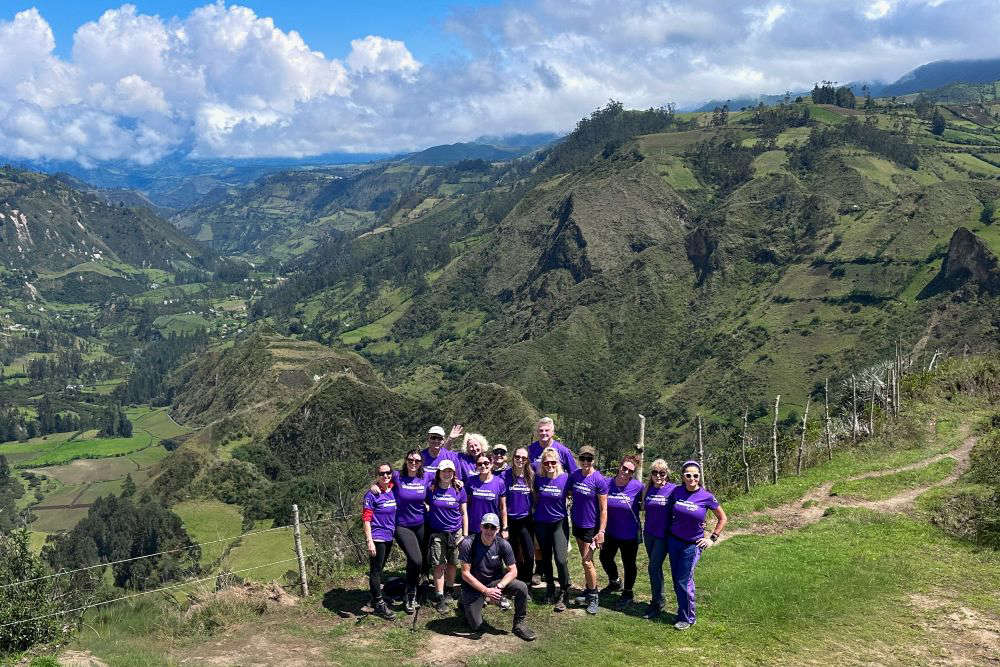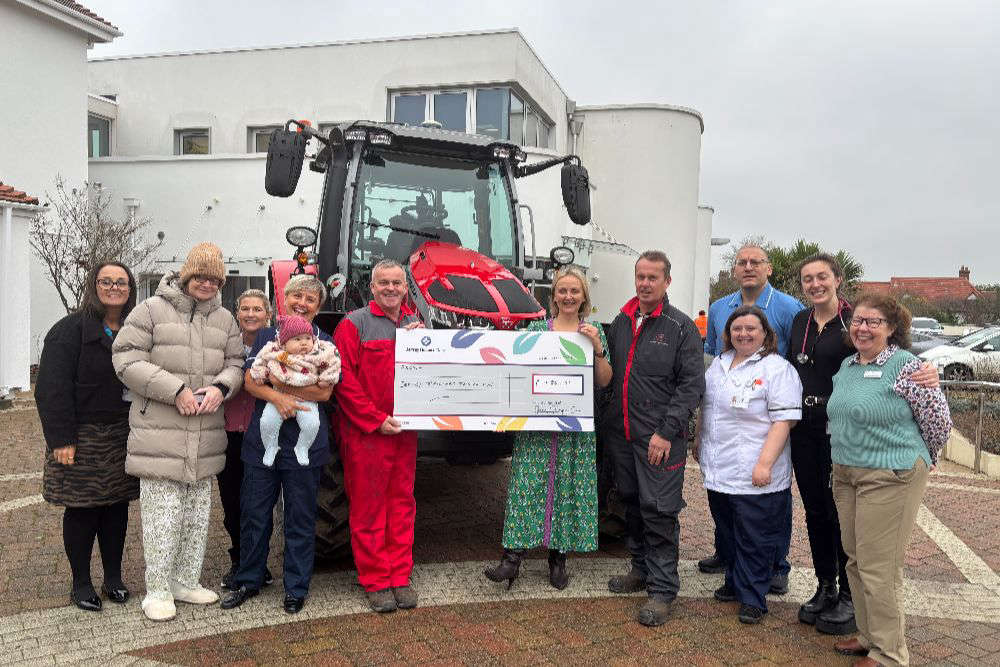
Islanders deemed at higher risk of getting seriously ill if they were to contract COVID-19 will get a letter inviting them to book a vaccination at Fort Regent from Monday 1st February.
Only those who have been diagnosed with a condition or illness that makes them 'clinically extremely vulnerable' will get a letter.
Islanders in this category will have been told so in a letter from their GP last summer. Anyone who didn't get one, but thinks they should have, is asked to contact their doctor.
The government says it's essential that they bring their letter and personal ID with them to the appointment.
They start on Saturday 6th February.
Pregnant women with serious heart disease are being asked to talk to their GP about the risks and benefits of getting the vaccine.
People aged between 70 and 74 will also be able to book a vaccine appointment from 1 February, but they won't receive a letter beforehand.
Those in the clinically extremely vulnerable category (and so are eligible to book a vaccine from 1 February) include:
- Solid organ transplant recipients
- People with specific cancers or receiving certain cancer treatments
- People with cancer who are receiving active chemotherapy
- People with lung cancer who are receiving radical radiotherapy
- People with blood cancers or bone marrow such as leukaemia, lymphoma or myeloma who are at any stage of treatment
- People having other targeted cancer treatments which can affect the immune system, such as protein kinase inhibitors or PARP inhibitors
- People having immunotherapy or other continuing antibody treatments for cancer
- People who have had bone marrow or stem cell transplants in the last six months, or are still taking immunosuppression drugs
- People with severe respiratory conditions including all cystic fibrosis, severe asthma and severe chronic obstructive pulmonary disease (COPD)
- People with rare diseases that significantly increase the risk of infections (e.g. severe combined immunodeficiency (SCID), homozygous sickle cell)
- People on immunosuppression therapies which can significantly increase risk of infection
- Pregnant women with significant heart disease, congenital or acquired
- Adults with Down's Syndrome
- Adults with kidney dialysis or stage 5 kidney disease
Those in the moderate risk category (and so are not yet eligible to book a vaccine) include:
- People with less severe respiratory conditions such as: Severe lung conditions, including those with asthma that need continuous or repeated use of systemic steroids or with previous exacerbations that require hospital admission, and chronic obstructive pulmonary disease (COPD) including chronic bronchitis and emphysema; bronchiectasis, cystic fibrosis, interstitial lung fibrosis, pneumoconiosis and bronchopulmonary dysplasia (BPD).
- People with chronic heart disease, such as heart failure, including: Congenital heart disease, hypertension with cardiac complications, chronic heart failure, people needing regular medication and/or follow-up for ischaemic heart disease. This includes people with atrial fibrillation, peripheral vascular disease or a history of venous thromboembolism.
- People with chronic kidney disease such as kidney failure (stage 3 or 4)
- People with chronic liver disease such as hepatitis, Cirrhosis and biliary atresia
- Stroke, transient ischemic attack (TIA). Conditions in which respiratory function may be compromised due to neurological disease (e.g. polio syndrome sufferers). This includes people with cerebral palsy, severe or profound learning disabilities, multiple sclerosis, epilepsy, dementia, Parkinson’s disease, motor neurone disease and related or similar conditions; or hereditary and degenerative disease of the nervous system or muscles; or severe neurological disability.
- Any diabetes, including diet-controlled diabetes
- HIV infection at all stages
- Anyone with a history of haematological malignancy, including leukaemia, lymphoma, and myeloma and those with systemic lupus erythematosus and rheumatoid arthritis, and psoriasis who may require long term immunosuppressive treatments
- People being treated with systemic steroids for more than a month
- People who are receiving immunosuppressive or immunomodulating biological therapy including: but not limited to, anti-TNF, alemtuzumab, ofatumumab, rituximab, patients receiving protein kinase inhibitors or PARP inhibitors, and people treated with steroid sparing agents such as cyclophosphamide and mycophenolate mofetil.
- All bone marrow or stem cell transplant recipients
- People with problems with their spleen, for example, if you have sickle cell disease or have had your spleen removed dysfunction of the spleen: This also includes conditions that may lead to splenic dysfunction, such as homozygous sickle cell disease, thalassemia major and coeliac syndrome
- People who are seriously overweight (a body mass index (BMI) of 40 or above)
- Severe mental illness: People with schizophrenia or bipolar disorder, or any mental illness that causes severe functional impairment.
- Adult carers: Those who are in receipt of a carer’s allowance, or those who are the main carer of an elderly or disabled person whose welfare may be at risk if the carer falls ill.
- Younger adults in long-stay nursing and residential care settings.
Islanders aged 75-79 are now able to make an appointment. The vaccines for people in this age group will start on Saturday 30 January.
The latest data on vaccine uptake is due to be published by the government this afternoon.
As of Sunday 17 January - 5,845 first doses had been administered, along with 2,009 second doses - bringing the total to 7,854.


 Police investigating report of indecent exposure at Bel Royal
Police investigating report of indecent exposure at Bel Royal
 New Year's Eve evacuation near Howard Davis Park due to gas leak
New Year's Eve evacuation near Howard Davis Park due to gas leak
 Plans submitted for Millbrook Park extension
Plans submitted for Millbrook Park extension
 Five Jersey residents on New Year Honours List
Five Jersey residents on New Year Honours List
 All-Jersey cast and chorus take to The Opera House stage
All-Jersey cast and chorus take to The Opera House stage
 Trekkers raise £25K for Dementia Jersey
Trekkers raise £25K for Dementia Jersey
 Alleged road rage assault on Christmas Eve
Alleged road rage assault on Christmas Eve
 Jersey's first Christmas Tractor Run raises more than £10k
Jersey's first Christmas Tractor Run raises more than £10k





Comments
Add a comment